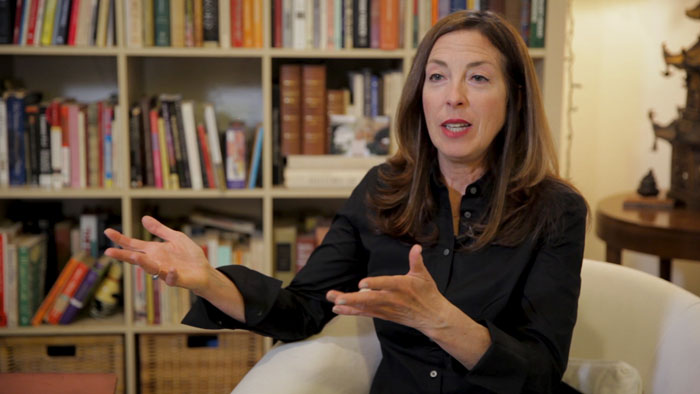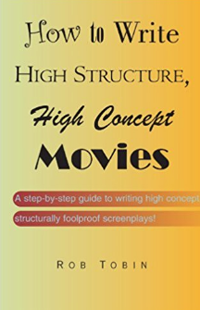
Film Courage: What are the top five screenwriters that someone should study?
Karl Iglesias: Wow…well if you go to the 101 Habits [Editor’s Note – Karl Iglesias’s book The 101 Habits of Highly Successful Screenwriters] there are 14 of the top writers I recommend. You can see their work and the new version (10th anniversary edition) had 18 new writers like Tony Gilroy and Terry Rossio, all the big names. Between the two, you have many writers, your mentors and their advice to you. In terms of writers I admire, Pixar, Pixar storytellers, Brad Bird, John Lasseter. The thing with John Lasseter that is really interesting is…just to show you the power that he had as a storyteller. When Disney bought Pixar and John Lasseter became the head of animation, all of the Disney animation movies have been successful, like really great storytelling starting with BOLT, all the way to TANGLED, FROZEN, to the latest one ZOOTOPIA. So these are not Pixar movies but you can see the PIXAR touch in them and they have been successful with audiences. So it kind of shows you that he’s had quite and influence at Disney. So yeah, I admire him, and hundreds and hundreds of other writers…(Watch the video interview on Youtube here).

Film Courage: Kathie, what is the difference between a low and high-concept movie? And which one favors new writers?
Kathie Fong Yoneda: I think that the low-concept favors new writers only because I think studios in general are more willing to take a chance on something that maybe is lower in budget. But concept and budget are two different things.
A high-concept movie usually means a higher-concept budget in general and that would be like your action pictures, your super-hero pictures, things like STAR WARS. Things that have what they call the “tentpole” (you’ve probably heard that term before) a tentpole effect…it’s just a lot different.
And most of them you’ll notice are based on something that has been adapted from another piece of material like comics, a book, novels, that kind of thing.
But for new people (new writers coming in), writing a nice project that is in another arena that doesn’t require a huge budget and a lot of special effects, that’s a way to really get a sense of can they develop characters? Can they carry a story all the way through for 90 minutes to 100 minutes? And can they give us good roles that actors want?
So I think that is better, if you try and do a lower-budget, lower-concept in terms of genre. That’s the way to do it…(Watch the video interview on Youtube here).

How To Write High Structure, High Concept Movies
Film Courage: What’s the definition of high-concept? Sometimes I struggle with it myself. Then I hear and go “Okay” and then I forget again.
Gary Goldstein: Well, generally it’s considered an idea that is very easily understandable in a couple of sentences. You know if you are pitching something, pitch a high-concept. Three secretaries conspire to murder their boss, 9 TO 5. An actor dresses as a woman to get a job on a soap opera because he can’t get any other work and learns to appreciate women more as a result of it, TOOTSIE…I mean that kind of thing.
Those movies are a little less popular now, those high-concept comedies or those high-concept ideas, but you still need a concept that is strong and simple to understand and for people to get. How will they market it?What will be on the poster?What will be in the trailer? Just for people to get it. It doesn’t have to be anything that wild or that imaginative, but it has to be relatively simple to state.
Otherwise ideas get so complicated that they get very convoluted and that shows up in the writing and sometimes the film itself. So it’s about keeping it simple but interesting and (I don’t know, for lack of a better word) clever and unique.
Film Courage: So can someone bounce that idea off of someone like “Hey this is the logline for my script (or whatever.” And if the person doesn’t get it, they know they need to refine the story?
Gary Goldstein: Right. I’ve definitely gone in to pitch ideas for a film or TV pilot or something and I think I get it and I think it’s a good idea and then someone will say…(Watch the video interview on Youtube here).

The Plot Machine: Design Better Stories Faster
Film Courage: How important is screenplay structure to your overall writing? Is there a specific structure you try to follow?
Jeffrey Reddick: I kind of learned writing through a ton of scripts at New Line [Cinema], when I was there I would read scripts all the time. I find that most of my stuff kind of falls into the traditional three-act structure, [Author Blake Snyder’s book] Save-The-Cat thing where there’s an inciting incident.
In don’t get into…there’s just some stuff…I shouldn’t roll my eyes at it because people do. But you know there are some books where they’ve broken it down to the micro-science and for me it’s just like too much. In the way, you don’t want to beat the creativity out of somebody by giving them too much of a structure. That’s why I think the three-act structure is enough.
Yes, at the end of your second act, something’s got to like propel you into the third act and things have got to get more intense and more intense to your finale.
I have a lot of friends who went to film school and their one thing is like “I wish I’d spent that money to make a film. I would have learned a lot more.”
It’s not anything against going to film school but if you’re trying to teach somebody who is artistic how to…you can teach them how to turn that into a format that is going to be more palpable to the masses.
But if you start to get too much into you know, on page 20 this needs to happen, on page 30 this has to happen, then you are stifling people’s creativity in a way…(Watch the video interview on Youtube here).

Film Courage: What does writing a marketable screenplay mean?
Wendy Kram, Consultant for screenwriters, directors, production companies:Great question, probably one of my favorite questions. I often say that you can have a great idea, super-high concept (I think I referenced previously)…I’ve heard story ideas and I go “Oh my gosh, that is great!” I want to option it before I even read it and then I read it and it’s not well-executed. So if you have a great concept that’s not well-executed, chances are that it will not sell. If you have a high-concept that is well-executed, you have a much better chance of it getting sold.
Conversely, you can have a project that is totally not high-concept but if it is beautifully executed, it then becomes marketable. So for example, if we take a movie like JUNO (and I’ll define high-concept). High-concept is THE HANGOVER, a bunch of guys…you know from the movie poster…I mean a lot of your audience knows what high-concept is but there are those who don’t and it’s terminology we use a lot and it’s basically where the concept is very big and immediately recognizable from the movie poster…(Watch the video on Youtube here).

Watch the video interview on Youtube here































Pingback: 4 Lessons On Writing A High Concept Movie – FilmCourage.com
Pingback: What Makes A Screenplay Marketable? by Wendy Kram – FilmCourage.com